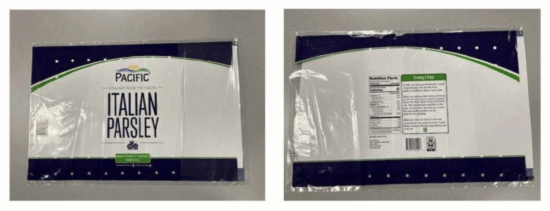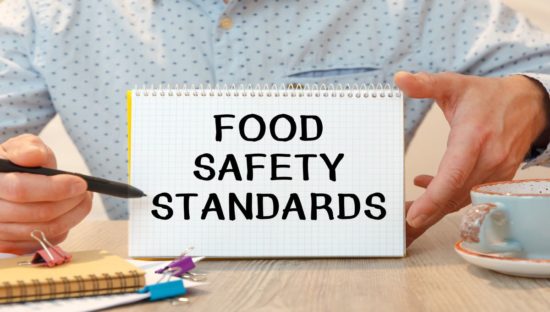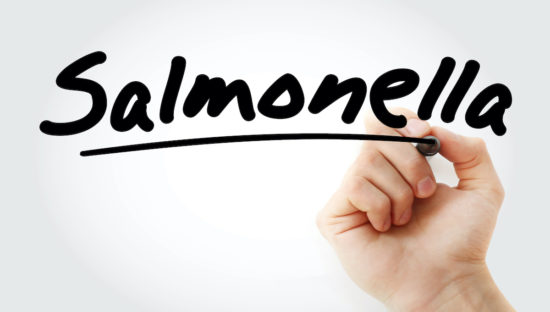Pacific International Marketing is recalling Italian Parsley because it may be contaminated with Salmonella.
The Italian Parsley was shipped to wholesalers in Arizona, California, Florida, Minnesota, Michigan, Georgia, Ohio and Nevada between Sept. 22 and Sept. 25.
The bulk parsley was sold in cases as 30 or 60 bunches with a twist tie, and in 24 count bunches with a twist tie in bags intended for wholesale distribution.
The UPC for the 30 and 60 count bunched Italian Parsley is 40695 80125, located on the twist tie. The UPC for the 24 count bags is 40695 80120. The shelf life of Italian Parsley is 18 days from harvest, or Oct. 10.
The company was recently notified that a sample taken on Oct. 6 tested positive for Salmonella. This product should no longer be available directly to consumers, except if the product is frozen.
No illnesses have been reported to date.
Pacific is assisting the Food and Drug Administration with its investigation, while concurrently conducting its internal investigation.
Businesses that purchased the recalled product directly from Pacific International Marketing have already been notified. Consumers who have the recalled product in their possession should discard it or return it to the place of purchase for a full refund.
Anyone with questions about this recall may call the company at 831-759-8301 or by mail at: P.O. Box 3737, Salinas, CA 93912-3737 or email at [email protected]. Updates will also be posted on PIM4U.com.
About Salmonella infections
Food contaminated with Salmonella bacteria does not usually look, smell, or taste spoiled. Anyone can become sick with a Salmonella infection. Infants, children, seniors, and people with weakened immune systems are at higher risk of serious illness because their immune systems are fragile, according to the CDC.
Anyone who has eaten any of the recalled parsley and developed symptoms of Salmonella infection should seek medical attention. Sick people should tell their doctors about the possible exposure to Salmonella bacteria because special tests are necessary to diagnose salmonellosis. Salmonella infection symptoms can mimic other illnesses, frequently leading to misdiagnosis.
Symptoms of Salmonella infection can include diarrhea, abdominal cramps, and fever within 12 to 72 hours after eating contaminated food. Otherwise, healthy adults are usually sick for four to seven days. In some cases, however, diarrhea may be so severe that patients require hospitalization.
Older adults, children, pregnant women, and people with weakened immune systems, such as cancer patients, are more likely to develop a severe illness and serious, sometimes life-threatening conditions.
Some people get infected without getting sick or showing any symptoms. However, they may still spread the infections to others.
(To sign up for a free subscription to Food Safety News, click here)



